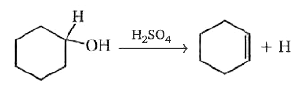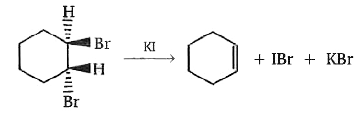Which of the following reaction is endothermic?
CaCO3→CaO+CO2
Fe+S→FeS
NaOH+HCI→NaCI+H2O
CH4+2O2→CO2+2H2O
To determine which of the following reactions is endothermic, we need to analyze each reaction based on the energy changes involved. An endothermic reaction is characterized by the absorption of heat, resulting in a positive change in enthalpy (ΔH > 0), while an exothermic reaction releases heat (ΔH < 0).
1. Understand Endothermic Reactions:
- An endothermic reaction absorbs energy from its surroundings. This means that the energy required to break the bonds in the reactants is greater than the energy released when new bonds are formed in the products.
2. Analyze Each Reaction:
- Option 1: CaCO3 → CaO + CO2
- This is a decomposition reaction. Decomposition reactions generally require energy to break the bonds in the reactants. Therefore, this reaction is endothermic.
- Conclusion: This reaction is endothermic.
- Option 2: Fe + S → FeS
- This reaction involves the formation of an ionic compound from its elements. The formation of bonds releases energy, making this reaction exothermic.
- Conclusion: This reaction is exothermic.
- Option 3: NaOH + HCl → NaCl + H2O
- In this neutralization reaction, the reactants are already dissociated in solution. The formation of water releases energy, indicating that this reaction is also exothermic.
- Conclusion: This reaction is exothermic.
- Option 4: Combustion of CH4 (Methane)
- The combustion of methane is a highly exothermic reaction, as it releases a significant amount of energy when methane reacts with oxygen to form carbon dioxide and water.
- Conclusion: This reaction is exothermic.
3. Final Answer:
- After analyzing all the options, the only endothermic reaction is Option 1: CaCO3 → CaO + CO2.
- An endothermic reaction absorbs energy from its surroundings. This means that the energy required to break the bonds in the reactants is greater than the energy released when new bonds are formed in the products.
- Option 1: CaCO3 → CaO + CO2
- This is a decomposition reaction. Decomposition reactions generally require energy to break the bonds in the reactants. Therefore, this reaction is endothermic.
- Conclusion: This reaction is endothermic.
- This reaction involves the formation of an ionic compound from its elements. The formation of bonds releases energy, making this reaction exothermic.
- Conclusion: This reaction is exothermic.
- In this neutralization reaction, the reactants are already dissociated in solution. The formation of water releases energy, indicating that this reaction is also exothermic.
- Conclusion: This reaction is exothermic.
- The combustion of methane is a highly exothermic reaction, as it releases a significant amount of energy when methane reacts with oxygen to form carbon dioxide and water.
- Conclusion: This reaction is exothermic.
- After analyzing all the options, the only endothermic reaction is Option 1: CaCO3 → CaO + CO2.
Topper's Solved these Questions
- THERMODYNAMICSBOOK - CENGAGE CHEMISTRY ENGLISHCHAPTER - THERMODYNAMICSEXERCISE - Exercises (Assertion-Reasoning)
23 Videos
- THERMODYNAMICSBOOK - CENGAGE CHEMISTRY ENGLISHCHAPTER - THERMODYNAMICSEXERCISE - Exercises (Interger)
10 Videos
- THERMODYNAMICSBOOK - CENGAGE CHEMISTRY ENGLISHCHAPTER - THERMODYNAMICSEXERCISE - Multiple correct Answer Type
2 Videos
- STOICHIOMETRYBOOK - CENGAGE CHEMISTRY ENGLISHCHAPTER - STOICHIOMETRYEXERCISE - Archives Subjective
33 Videos
Similar Questions
Knowledge Check
Which of the following reactions is endothermic ?
CaCO3(s)→CaO(s)+CO2(s)
Fe(s)+S(s)→FeS(s)
NaOH(aq)+HCl(aq)→NaCl(aq)+H2O(l)
CH4(g)+2O2(g)→CO29g)+2H2O(l).ACaCO3(s)→CaO(s)+CO2(s)BFe(s)+S(s)→FeS(s)CNaOH(aq)+HCl(aq)→NaCl(aq)+H2O(l)DCH4(g)+2O2(g)→CO29g)+2H2O(l).Which of the following reaction is an elimination reaction ?
A B
B C
C Dboth (a) and (b)
Dboth (a) and (b)
Which of the following process is not endothermic?
View SolutionWhich of the following reactions is a decomposition reaction ?
View SolutionWhich of the following reactions is not a disproportination reaction ?
View SolutionWhich of the following is an endothermic reaction?
View SolutionWhich of the following reaction in the blast furnace is / are endothermic ?
View SolutionWhich of the following reaction in the blast furnace is / are endothermic ?
View Solution
